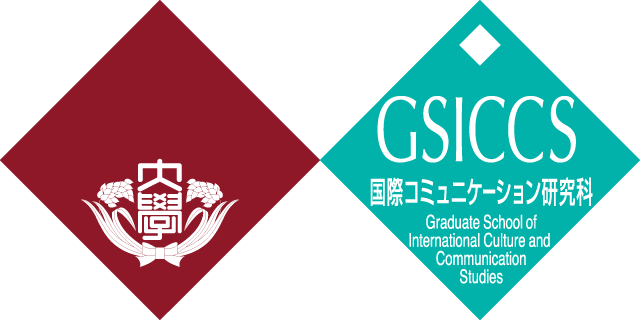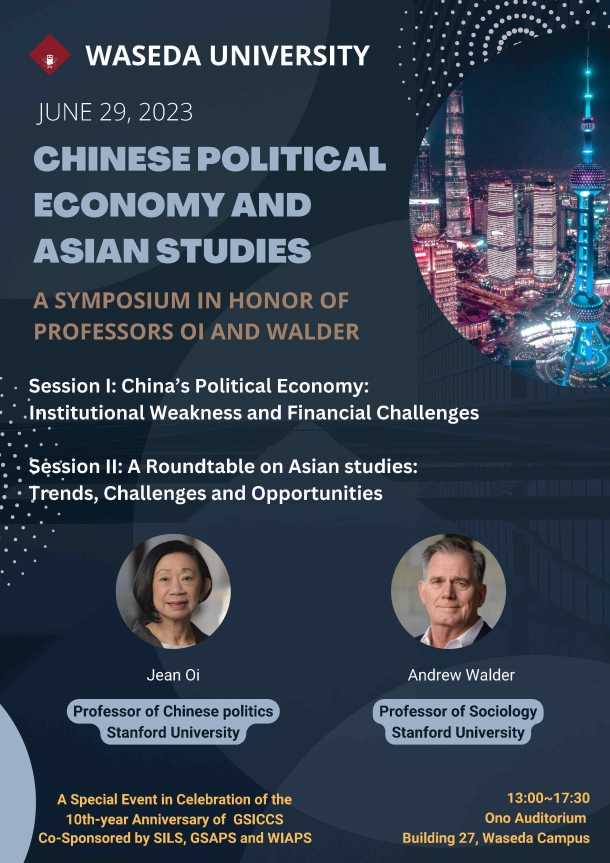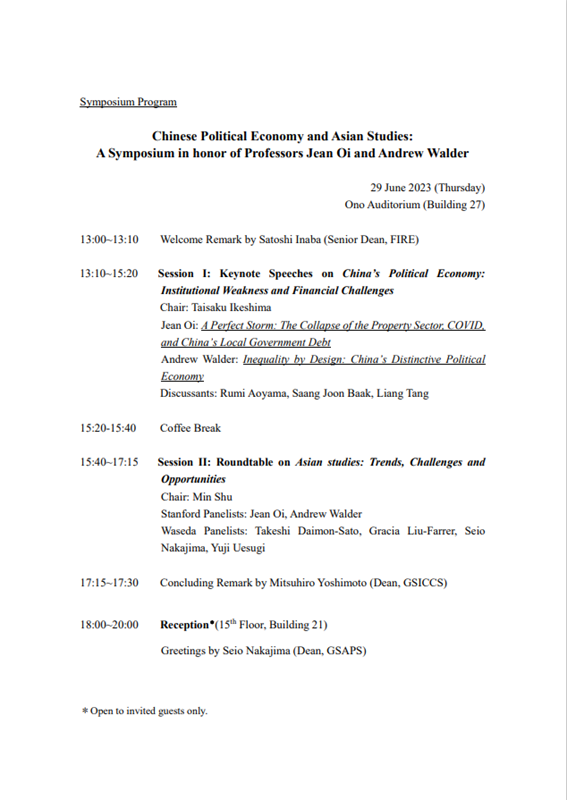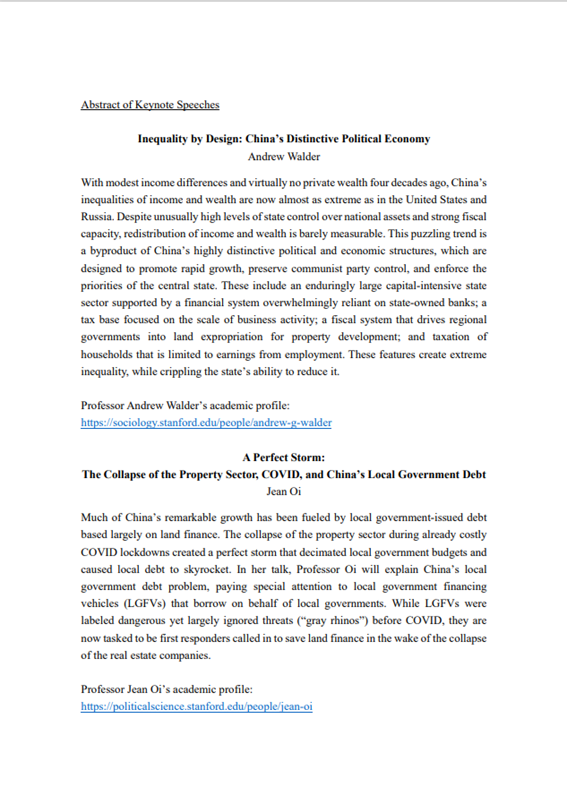- News
- 【Report】International Symposium: Chinese Political Economy and Asian Studies
【Report】International Symposium: Chinese Political Economy and Asian Studies
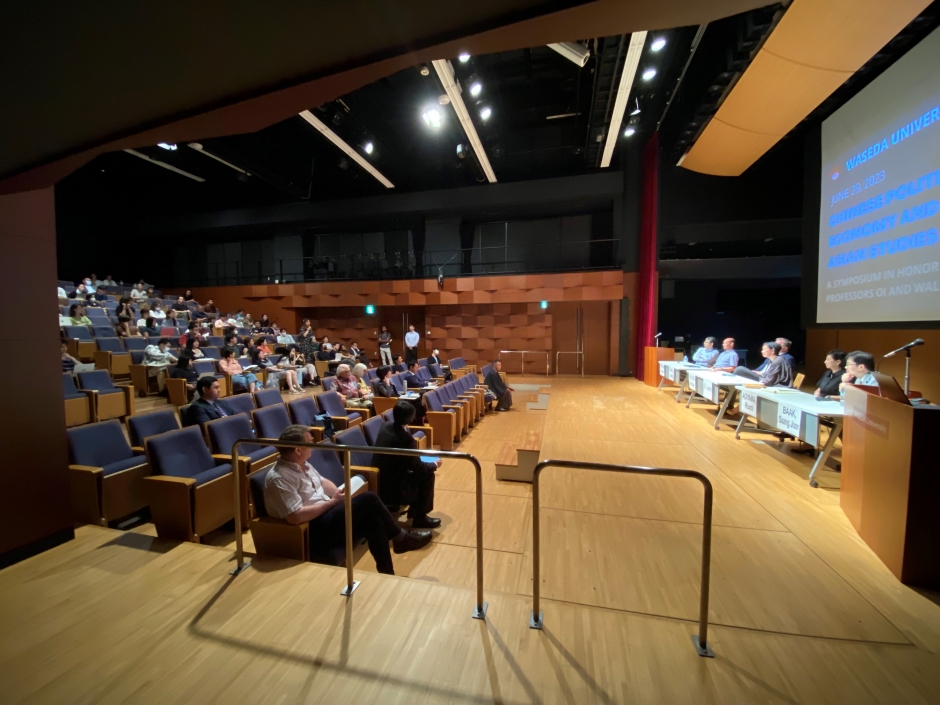
- Posted
- Thu, 06 Jul 2023
A Special Event in Celebration of the 10th-year Anniversary of GSICCS
An international symposium on Chinese Political Economy and Asian Studies was held at the Ono Auditorium on 29 June 2023, to welcome Stanford Professors Jean Oi and Andrew Walder’s visit to Waseda University. The symposium was one of the special events to celebrate the tenth anniversary of GSICCS (Graduate School of International Culture and Communication Studies). It was co-sponsored by SILS (School of Liberal International Studies), GSAPS (Graduate School of Asia-Pacific Studies), and WIAPS (Research Center of Asia-Pacific Studies).
Professor Jean Oi is the William Haas Professor of Chinese politics at Department of Political Science, Stanford University. In 2023-2024, Professor Oi is elected as the President of AAS (Association for Asian Studies), the world’s largest academic association specialized in Asian studies. Professor Andrew Walder is the Denise O’Leary and Kent Thiry Professor at Department of Sociology, Stanford University. Professor Walder was elected as a fellow of American Academy of Arts and Sciences in 2012 in recognition of his special contribution to the studies of communist regimes and their successor countries (esp. China).
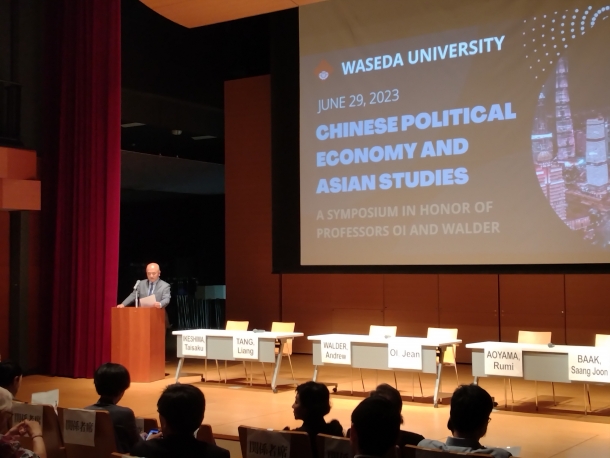 Professor Satoshi Inaba, the Senior Dean of FIRE (Faculty of International Research and Education) gave the welcome remark at the beginning of the symposium. Recalling his early visit to the Stanford campus, Professor Inaba welcomed the visit of Professor Oi and Walder and made an enthusiastic call for closer collaboration between Stanford and Waseda Universities.
Professor Satoshi Inaba, the Senior Dean of FIRE (Faculty of International Research and Education) gave the welcome remark at the beginning of the symposium. Recalling his early visit to the Stanford campus, Professor Inaba welcomed the visit of Professor Oi and Walder and made an enthusiastic call for closer collaboration between Stanford and Waseda Universities.
The first session of the symposium, chaired by Professor Taisaku Ikeshima (SILS & GSICCS), was titled China’s Political Economy: Institutional Weakness and Financial Challenges. It included two keynote speeches delivered by Professors Oi and Walder. Professor Oi’s speech examined the origin and the development of Chinese local government’s debt problems. Her talk paid special attention to the impacts of a weakened real estate market and the zero-COVID policy in recent years, revealing a worrying future of the debt-financed growth model that had contributed to the economic rise of China in the first two decades of the post-Cold War era. Professor Walder’s speech provided an institutional explanation of the extreme economic inequality in China. He showed that, despite China’s strong state capacity, the redistribution of national income was virtually non-existed in the reform era. To explain this puzzle, Professor Walder highlighted the unique financial, and fiscal and institutional path of China’s economic reform and pointed to their oft-neglected impacts on income and wealth inequality.
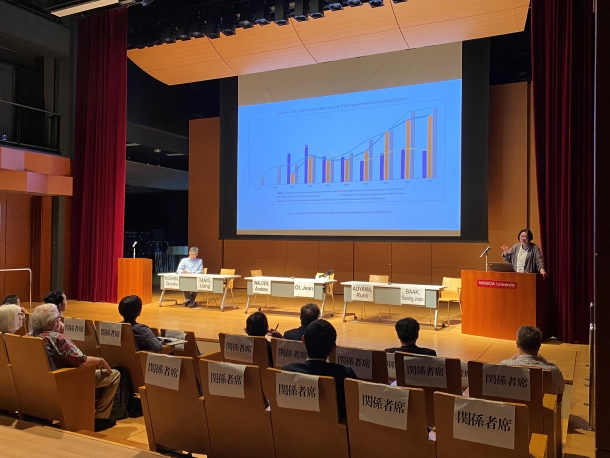
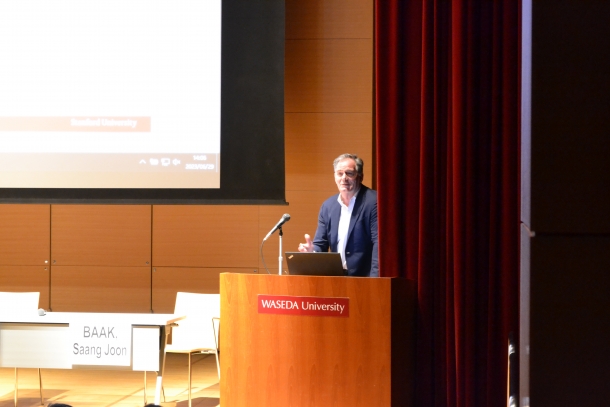
Leading Waseda experts on Chinese politics and economy, Professors Rumi Aoyama (GSAPS), Saang Joon Baak (SILS) and Liang Tang (PSE) offered insightful comments on the two keynote speeches.
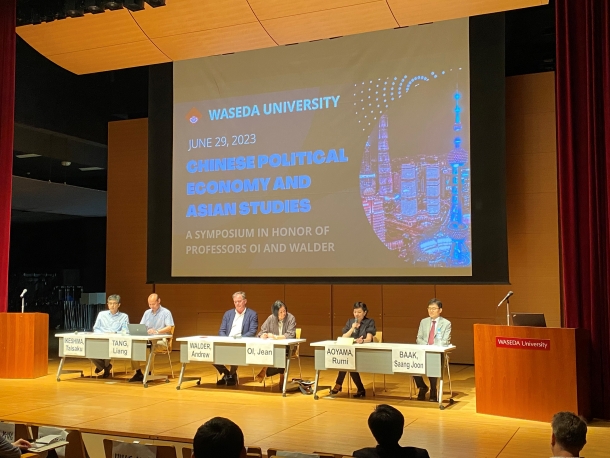
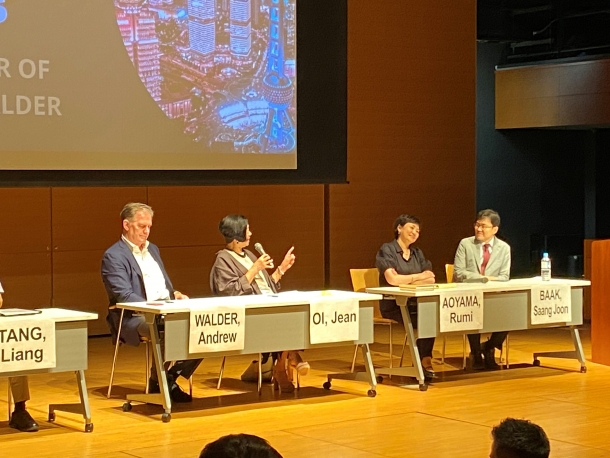
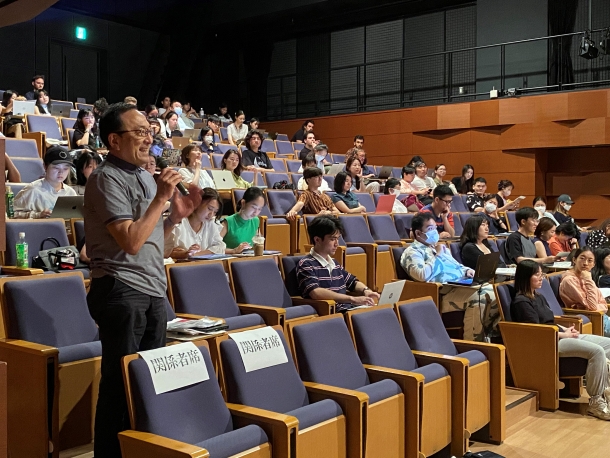
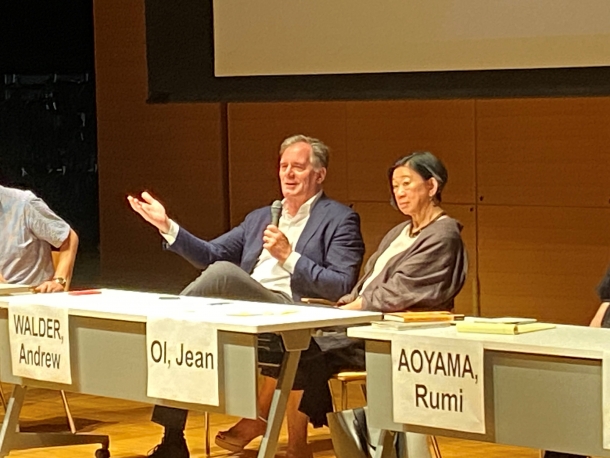
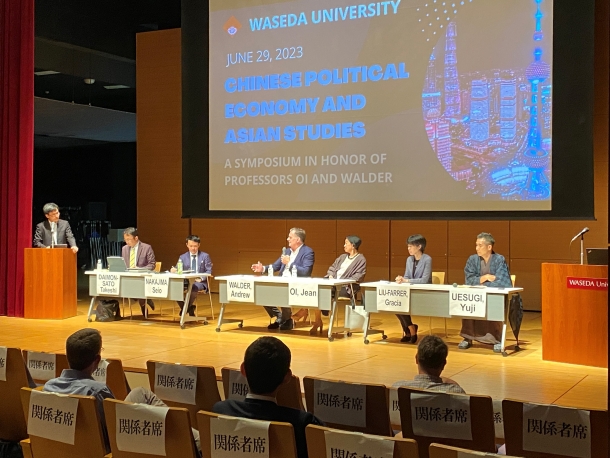
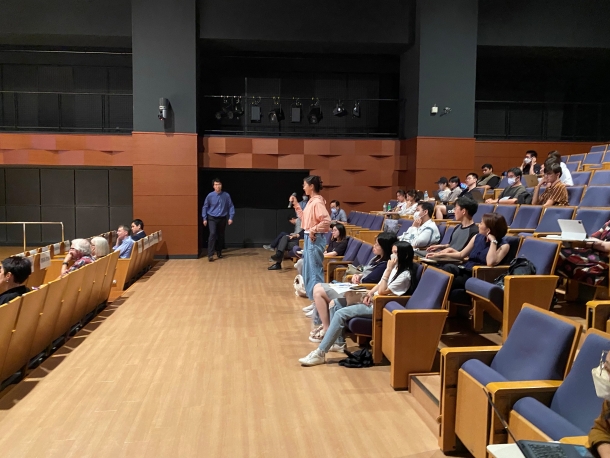 In the second session, Professors Oi and Walder joined a roundtable discussion on Asian studies, together with four Waseda faculty members who are working in a variety of disciplinary areas: Professors Takeshi Daimon-Sato (development economics), Gracia Liu-Farrer (ethnicity and migration), Seio Nakajima (cultural sociology), Yuji Uesugi (conflict and peace studies). Chaired by Associate Professor Min Shu (SILS & GSICCS), the roundtable first asked each panelist to give a brief introduction to their Asia-related research. Then, all the panelists were invited to explore the methodological approaches (area studies, humanity approaches, and social science methods), spatial focuses (single-country study, cross-country comparison, or regional analysis), and empirical research methods (interviews, archives/documents, fieldworks, etc.) in Asian studies. Based on their diversified and extensive research experiences, the six panelists had an unusually stimulating discussion on their intellectual experiences and methodological choices, as well as the recent trends, challenges and opportunities of Asian studies.
In the second session, Professors Oi and Walder joined a roundtable discussion on Asian studies, together with four Waseda faculty members who are working in a variety of disciplinary areas: Professors Takeshi Daimon-Sato (development economics), Gracia Liu-Farrer (ethnicity and migration), Seio Nakajima (cultural sociology), Yuji Uesugi (conflict and peace studies). Chaired by Associate Professor Min Shu (SILS & GSICCS), the roundtable first asked each panelist to give a brief introduction to their Asia-related research. Then, all the panelists were invited to explore the methodological approaches (area studies, humanity approaches, and social science methods), spatial focuses (single-country study, cross-country comparison, or regional analysis), and empirical research methods (interviews, archives/documents, fieldworks, etc.) in Asian studies. Based on their diversified and extensive research experiences, the six panelists had an unusually stimulating discussion on their intellectual experiences and methodological choices, as well as the recent trends, challenges and opportunities of Asian studies.
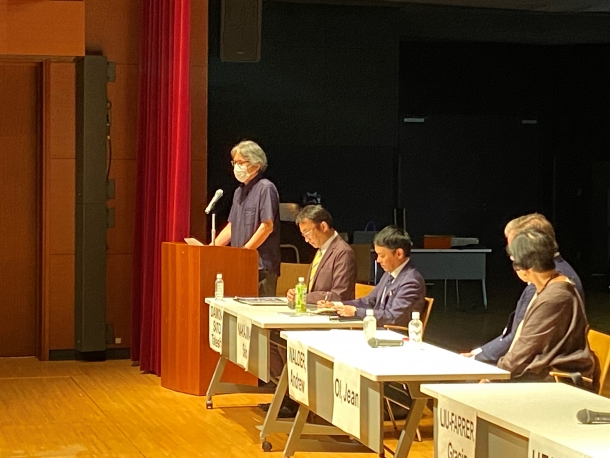 In his closing remarks of the symposium, Professor Mitsuhiro Yoshimoto, the Dean of GSICCS, raised additional questions on the Asian studies’ mainstream language (i.e., English) and specific location (e.g., Japan), inviting all the participants to continue their debates on these important topics beyond the symposium.
In his closing remarks of the symposium, Professor Mitsuhiro Yoshimoto, the Dean of GSICCS, raised additional questions on the Asian studies’ mainstream language (i.e., English) and specific location (e.g., Japan), inviting all the participants to continue their debates on these important topics beyond the symposium.
For more details of the International Symposium on Chinese Political Economy and Asian Studies, please check its Poster and Program (including abstracts of the Keynote Speeches and main topics of the Roundtable).
